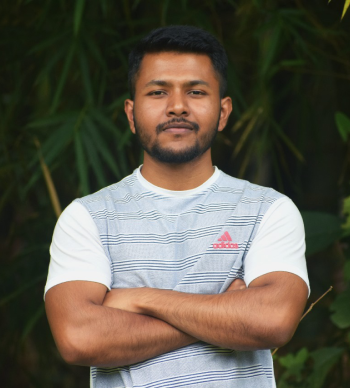Our Journey
-
 2007
2007The Balipara Foundation is Born
Founded in 2007, Balipara Foundation began with a focus on Asian elephant conservation and has since evolved into a vision dedicated to restoring landscapes, regenerating forest economies, and preserving biodiversity through nature-based livelihoods. What started as a conservation initiative now drives environmental resilience, revitalizes communities, and safeguards ecosystems through nature-driven solutions.
-
 2009
2009The First Naturenomics™ publication is launched
"Naturenomics™ – Nature and Economics: Nurturing Interdependence" is the first published compilation of thought pieces exploring the themes of Naturenomics™. At its core, the challenge lies in measuring and framing ecological value. While economics operates within a theoretical construct that assesses value through market forces—optimizing land, labor, capital, and natural resources—Naturenomics™ seeks to integrate ecological value into this framework.
-
 2013
2013Balipara Foundation Awards is launched
Launched in 2013, the Balipara Foundation Awards celebrate pioneers in conservation, biodiversity restoration, and sustainable livelihoods across the remote corners of the Eastern Himalayan region. Recognizing grassroots leaders and organizations, the awards amplify indigenous knowledge and nature-based solutions, fostering a global dialogue on ecological and socio-economic resilience.
-
 2014
2014Launch of the Asian Elephants in the Wild Conference
Launched in 2014, this conference brought together experts, conservationists and policymakers to address the challenges facing wild Asian elephants. It fostered dialogue on habitat conservation, human-elephant coexistence, and policy-driven solutions, paving the way for collaborative action to protect these keystone species and their ecosystems.
-
 2016
2016The launch of the Eastern Himalayan Botanic Ark
The Eastern Himalayan Botanic Ark, the first of its kind in the region, has grown into a thriving biodiversity haven. Once part of the Balipara Tea Garden, documented since 1874, it was restored in 2005. Nestled along the Brahmaputra, this 22-acre sanctuary now fosters conservation, blending history, nature, and community. Guided by local botanists, it preserves the bio-cultural heritage of the Eastern Himalayas, building a Museum of Botany and Natural History for future generations.
-
 2016
2016The launch of the Eastern Himalayan Naturenomics™ Forum
The Eastern Himalayan Naturenomics™ Forum (EHNF) was rebranded to reflect a shift from a single-species conservation focus to a holistic approach that integrates biodiversity, ecosystems, and community livelihoods. Recognizing that true sustainability requires interconnected solutions, the forum evolved into a dynamic platform fostering dialogue on regenerative economies, climate resilience, and nature-based solutions. This transformation positioned EHNF as a catalyst for cross-sector collaboration, bringing together policymakers, scientists, businesses, and grassroots leaders to drive ecological and socio-economic change across the Eastern Himalayas.
-
 2017
2017Ecological Restoration in the Eastern Himalaya
Balipara Foundation began its ecological restoration journey with a focus on regenerating degraded landscapes and fostering harmony between nature and communities. Recognizing the interdependence of biodiversity, livelihoods, and climate resilience, the foundation initially centered its efforts on conserving Asian elephant habitats. Over time, this mission expanded into a broader vision of restoring forests, reviving ecosystems, and creating sustainable, nature-based livelihoods. Through community-driven conservation, agroforestry, and habitat regeneration,it continues to build Biodiversity Havens—ensuring that ecosystems thrive while empowering local and indigenous communities to become stewards of their natural heritage.
-
 2019
2019First Regional Eastern Himalayan Naturenomics™ Forum launch
The first regional Eastern Himalayan Naturenomics™ Forum was launched with the belief that grassroots platforms and community-driven conversations are essential for shaping sustainable futures. Recognizing that local communities are at the forefront of climate resilience and ecological stewardship, the forum was designed to amplify their voices, insights, and solutions. By bringing together diverse stakeholders—ranging from indigenous leaders and conservation practitioners to policymakers and businesses—the forum created a collaborative space to drive nature-based economies, climate action, and regenerative development in the Eastern Himalayas.
-
 2019
20191.2 million trees planted across 1200 Hectares
Balipara Foundation achieves a significant milestone by planting 1.2 million trees across 1,200 hectares. This large-scale afforestation effort restored critical habitats, enhanced biodiversity and helped support livelihoods, demonstrating the power of community-driven conservation in fostering ecological resilience and sustainable development in the Eastern Himalaya.
-
 2022
2022Launch of the first agroforestry project
The Balipara Foundation initiated its first ever agroforestry project in Baligaon village, Balipara, Assam, promoting sustainable land use by integrating trees and crops. It has significantly contributed towards enhancing soil health, conserving biodiversity and building climate resilience, providing long-term ecological and economic benefits for local communities in the region.
-
 2024
2024Naturenomics™ Vision Achieves 6.72 Million Trees Planted Across 5,537.5 Hectares by 2024
By 2024, the Naturenomics™ vision has led to the planting of 6.72 million trees across 5,537.5 hectares, restoring critical forest landscapes and enhancing regional biodiversity. This effort has contributed to habitat restoration, supporting diverse flora and fauna while strengthening ecological resilience. Beyond environmental impact, the initiative has directly benefited 36,000 people, empowering local communities through sustainable livelihoods, agroforestry and nature-based enterprises. By integrating traditional ecological knowledge with innovative conservation practices, the movement continues to drive long-term environmental and socio-economic transformation in the region.
Our Team
A dedicated team of experts committed to delivering innovative solutions with excellence.































